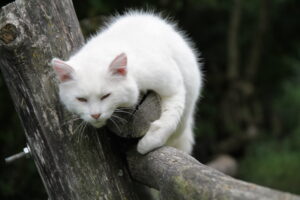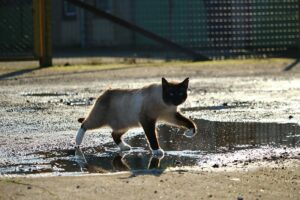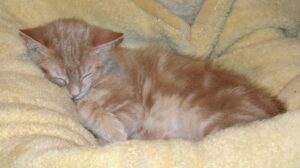What Can I Give My Cat For Constipation ?
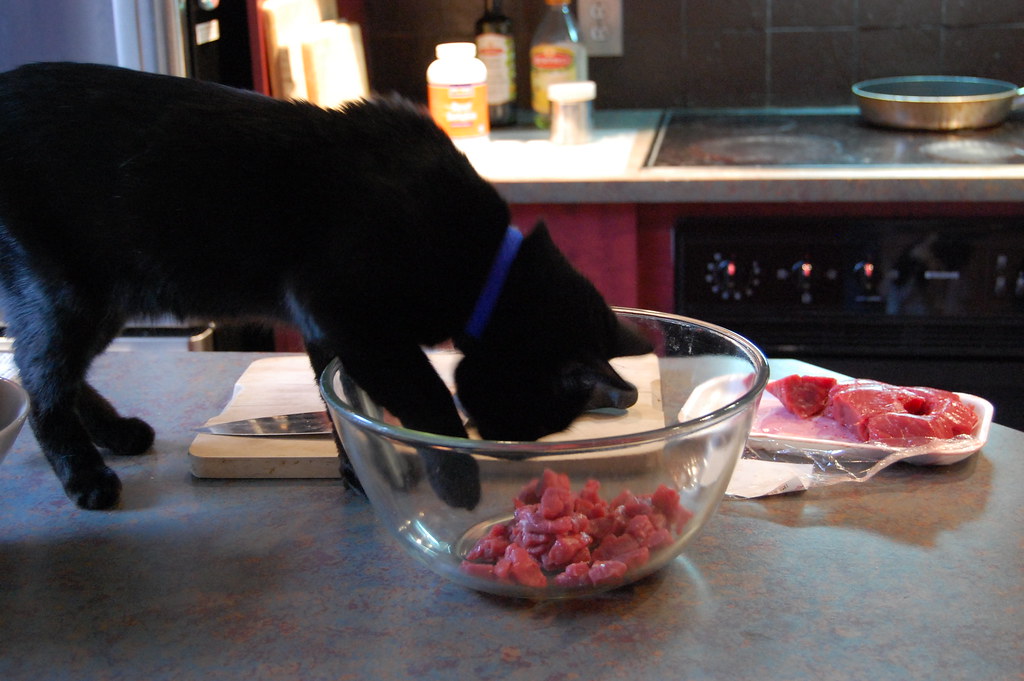
What Can I Give My Cat For Constipation :- Is your feline companion experiencing discomfort and restlessness due to constipation? Our experienced vets in Ypsilanti shed light on the potential causes of cat constipation in this blog, aiming to provide valuable insights into recognition and potential remedies for your kitty’s well-being.
Constipation is a prevalent issue in cats, often manageable with simple home treatments for mild cases. However, it’s crucial to be aware that persistent or severe constipation may signal underlying health concerns, necessitating veterinary attention. In this guide, we’ll explore the symptoms and causes of cat constipation, offer tips on providing relief for your constipated feline, and highlight the signs that indicate when professional veterinary care is essential.
What is constipation?
When your cat is constipated, they may exhibit changes in their bowel habits, such as reduced frequency of passing stool and the presence of harder or drier feces. The firm consistency of the stool can lead to straining during elimination, and there may be instances where your cat passes a small amount of blood. Constipation can stem from factors like mild dehydration or an obstruction in the intestinal tract.
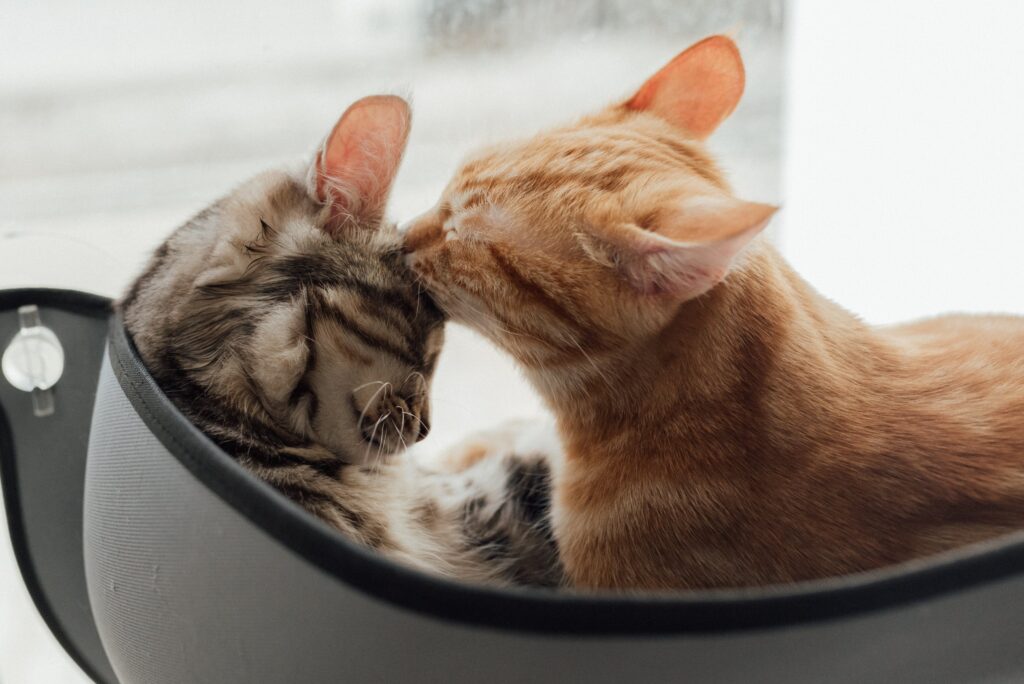
Obstructions may result from various causes, including hairballs, worms, dry feces, or the ingestion of foreign materials. These obstructions can sometimes lead to vomiting in cats. In some cases, constipation may be associated with more serious conditions such as gastrointestinal tumors or ‘megacolon,’ a condition where the bowel becomes enlarged and weakened, hindering effective stool passage.
BEST WAYS TO HELP YOUR CAT WITH THIS CONDITION
Here are six effective ways to assist your cat with constipation:
- Hydration: Ensure your cat stays well-hydrated by providing ample fresh water daily. If your cat is not a big water drinker, consider offering plain chicken or tuna broth. Special cat “broth” meals available in pet stores can also be included occasionally.
- Diet: Introduce wet food into your cat’s diet, as it helps alleviate constipation by providing hydration and easier digestion compared to dry food. Consult your vet before making significant dietary changes. Alternating between wet and dry food is ideal, but exclusively feeding wet food for a couple of days can be beneficial for severe constipation. In some cases, high-fiber prescription diets may be recommended for long-term management.
- Exercise: Encourage regular play to promote bowel regularity and reduce constipation risk. Engage your cat in active play using toys or wands. Tailor the play to your cat’s preferences, whether it’s chasing a toy, using kick toys, or interacting with a treat ball.
- Stress Reduction: Environmental stress can contribute to constipation. Minimize stressors by maintaining a consistent routine and environment. Consider adding enrichment activities like climbing structures, viewing perches, and scratching posts. Cats may benefit from pheromones (Feliway), natural herbs (catnip), and medications. Providing multiple litter boxes in the household can also reduce stress related to elimination.
- Over-the-Counter Laxatives (Miralax and Lactulose): Some cats benefit from regular use of laxative medications to soften stool and aid passage. Medications like Miralax and Lactulose can be effective but should be administered under veterinary guidance. Regular follow-ups are essential to monitor for potential side effects and assess the need for ongoing medication.
- Veterinary Consultation: If constipation persists or worsens, seek veterinary attention promptly. Your vet can conduct a thorough examination, recommend appropriate treatments, and address any underlying health issues contributing to constipation.
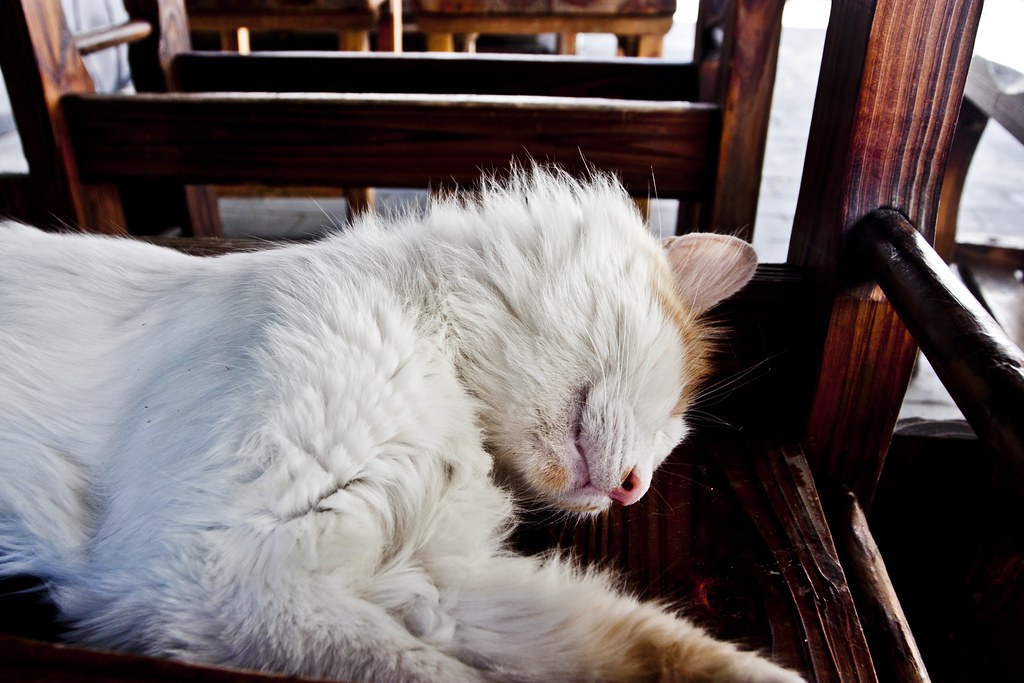
The Causes of Cat Constipation
What Can I Give My Cat For Constipation? Constipation in cats can arise from disruptions in normal intestinal movement. Various factors contributing to your cat’s constipation may include:
- Insufficient Fiber: Cats with diets lacking adequate fiber may be prone to constipation.
- Anxiety or Stress: Environmental stressors can impact a cat’s digestive health.
- Spinal Pain or Issues: Pain or spinal problems may contribute to constipation.
- Dry Food Diets: Diets predominantly composed of dry food can predispose cats to constipation and dehydration.
- Arthritis Pain: Cats with arthritis may experience difficulty with bowel movements.
- Kidney Issues: Kidney problems can contribute to constipation.
- Obstruction: Objects like bones or strings obstructing the colon can lead to constipation.
- Excessive Grooming: Intense grooming can introduce extra hair into the digestive tract.
- Feline Megacolon: Enlargement of the colon can result in ineffective muscle contractions, leading to dry stool accumulation.
- Inflammatory Bowel Disease: Inflammation in the digestive tract can contribute to constipation.
- Nerve Problems: Issues with nerves controlling bowel function can cause constipation.
- Allergies: Allergic reactions may influence digestive health.
- Narrow Places, Tumors, or Colon Problems: Structural issues within the colon, such as narrow passages or tumors, can lead to constipation.
- Cancer: Certain cancers may contribute to constipation.
- Perianal Disease: Conditions affecting the area around the anus can be a factor.
- Chronic Diseases: Underlying conditions like hyperthyroidism, diabetes, or kidney disease may play a role.
- Ruptured or Impacted Anal Sacs: Issues with anal sacs can cause pain during defecation.
While cats of any age or breed can develop constipation, elderly cats are more prone to experiencing this issue compared to kittens.
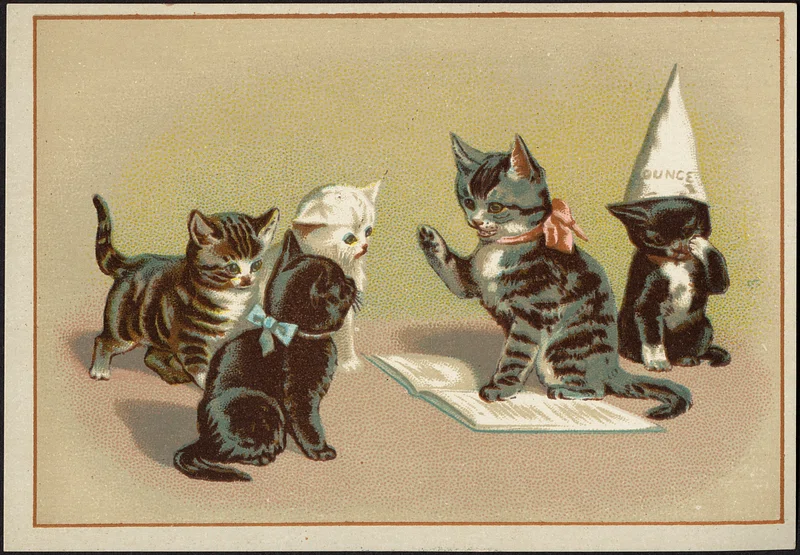
Veterinary treatment for cat constipation
What Can I Give My Cat For Constipation ? Upon reaching the veterinary practice, a comprehensive physical examination will be conducted to assess the severity of your cat’s constipation. The vet will then determine the most appropriate course of action. For mild cases, dietary adjustments may suffice to restore normal bowel habits. In more severe instances, the vet might recommend interventions such as enemas or prescribe medications like laxatives, stool softeners, or probiotics.
While you might be tempted to address the issue at home before the vet appointment, it’s crucial to refrain from administering human medications or laxatives to your cat. The risk of injury and toxicity is real, potentially exacerbating the problem. Always consult your vet before attempting any remedies.
Effective management of cat constipation typically involves monitoring daily water intake, maintaining clean bowls and litter trays with fresh water daily, and introducing more exercise. A balanced diet is essential to encourage regular bowel movements. Consider exploring special cat diets tailored to your cat’s unique needs for optimal care. By prioritizing these aspects, you can contribute to your cat’s long, healthy, happy, and active life.

